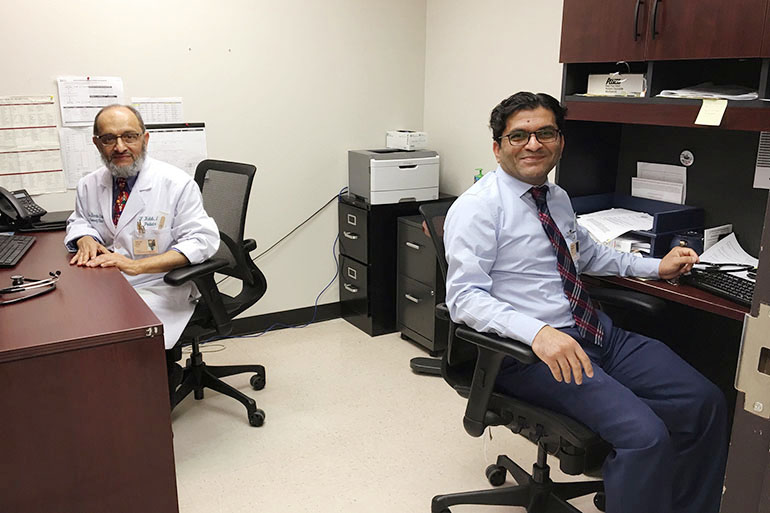Lauren Silverman is the Health, Science & Technology reporter/blogger at KERA News. She received a Peabody Award for her contribution to NPR’s Ebola coverage in 2014 and has won several regional awards; an honorable mention for Edward R. Murrow awards, as well as the Texas Veterans Commission’s Excellence in Media Awards in the radio category.
Lauren Silverman
From this contributor
U.S. travel ban threatens to worsen nation’s doctor shortage
The U.S. medical system depends on doctors from other countries, who often work in areas in desperate need of providers.

U.S. travel ban threatens to worsen nation’s doctor shortage
Women aren’t taking first place in top medical journals
There’s a gender gap in who gets top billing on medical studies published in several of the most prestigious research journals.

Women aren’t taking first place in top medical journals
Explore more from The Transmitter
Machine learning spots neural progenitors in adult human brains
But the finding has not settled the long-standing debate over the existence and extent of neurogenesis during adulthood, says Yale University neuroscientist Juan Arellano.

Machine learning spots neural progenitors in adult human brains
But the finding has not settled the long-standing debate over the existence and extent of neurogenesis during adulthood, says Yale University neuroscientist Juan Arellano.
Xiao-Jing Wang outlines the future of theoretical neuroscience
Wang discusses why he decided the time was right for a new theoretical neuroscience textbook and how bifurcation is a key missing concept in neuroscience explanations.
Xiao-Jing Wang outlines the future of theoretical neuroscience
Wang discusses why he decided the time was right for a new theoretical neuroscience textbook and how bifurcation is a key missing concept in neuroscience explanations.
Memory study sparks debate over statistical methods
Critics of a 2024 Nature paper suggest the authors failed to address the risk of false-positive findings. The authors argue more rigorous methods can result in missed leads.

Memory study sparks debate over statistical methods
Critics of a 2024 Nature paper suggest the authors failed to address the risk of false-positive findings. The authors argue more rigorous methods can result in missed leads.